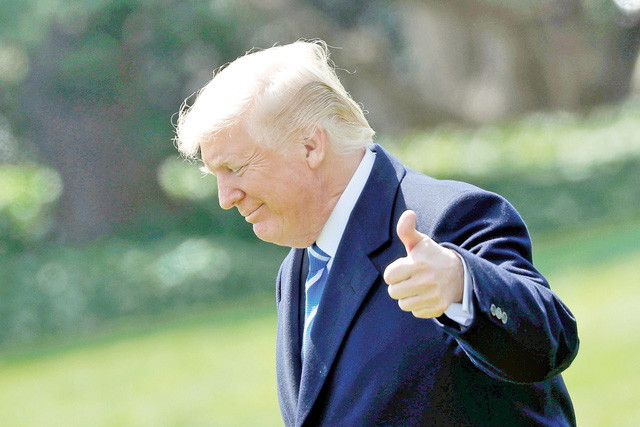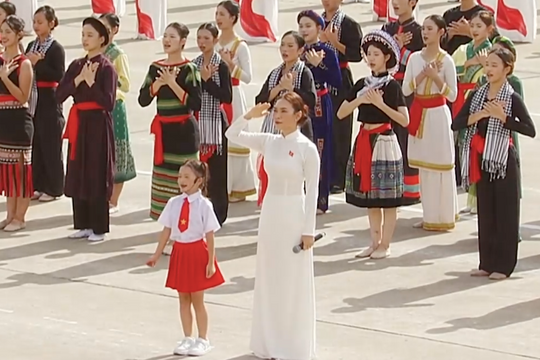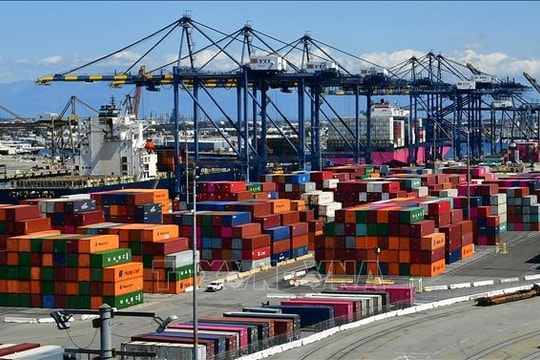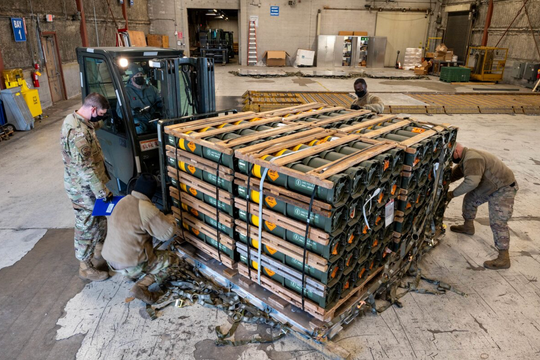Russia-China alliance against the US?
By punishing Russia and playing tough with China on trade, US President Donald Trump is putting himself in a “two-fronted enemy” situation. But it’s clear that he wants it that way!
 |
| Will President Trump succeed in the "Russia-China two-way street"? Photo: Reuters |
President Trump has selectively confronted both Russia and China, on two different fronts: geopolitics and trade. It is worth noting that this is not the first time that Trump has angered both Russia and China at the same time. The US National Security Strategy, released by President Trump in December 2017, identified Russia and China as “revisionist powers” with “attempts to change the status quo.”
Take it easy with Russia
The current US president has shown that he is not a person who likes to pick a fight with Russia, but Washington's recent moves have surprised many people because of the severity of their actions. For example, on March 26, the US announced the expulsion of 60 Russian diplomats, including 12 from the Russian delegation to the United Nations - the most since the Cold War.
People do not believe that Mr. Trump, who just a few days ago called to congratulate Mr. Vladimir Putin on his re-election as Russian president and invited him to visit the White House, would change his attitude so quickly.
President Trump is under increasing pressure from Congress, including Republicans, for whom any soft stance on Putin is problematic.
Democratic Senator Bob Menendez, a member of the US Senate Foreign Relations Committee and one of the "authors" of sanctions against Russia, urged President Trump to come up with a clear response to Moscow. "Nearly 15 months have passed and many Americans and US allies are asking: is President Trump willing to fully defend democracy and national interests?" - Mr. Menendez criticized.
Dozens of his colleagues in the US Congress share that skepticism. "President Trump says he wants a good relationship with Russia, but it depends on Moscow's actions," White House press secretary Sarah Sanders stressed at a press briefing on April 7.
President Trump is showing that he punishes Russia as if he were forced to do so, by pushing for sanctions against Russia slowly after realizing that the criticism has reached a high enough level. "Hit the one who runs away, not the one who runs back", it is not surprising that Mr. Trump's recent moves against Russia have received praise from many quarters, both at home and abroad.
Few people noticed that most of them took place at crucial times for the US, when Washington's credibility was questioned by its allies and the gears of the Trump administration were stuck in the US Congress due to many problems. More importantly, it immediately caused criticism or skepticism about Mr. Trump's collusion with Russia to noticeably calm down in the US.
Tough on China
Neither President Trump nor Chinese President Xi Jinping can afford to lose a trade war, or give up too much without getting something in return. Trade became a central theme of Trump’s 2016 campaign, with pledges such as “bringing jobs back to America” and labeling China a “currency manipulator.”
The midterm elections scheduled for later this year, which will determine whether Democrats or Republicans control both houses of Congress, will be an opportunity for the people to test those commitments. Just like when a real war breaks out, the recent retaliatory measures between the US and China (but always initiated by Mr. Trump) are extremely rich spiritual food for those with "patriotic" or "nationalist" ideologies in the US.
For President Trump’s core base, fair trade and addressing China’s bad behavior are important issues. Getting tough on China could help Trump secure quality support from some parts of the American business community.
Russia-China alliance against the US?
"The enemy of my enemy is my friend", President Trump's choice to confront both Russia and China at the same time has raised concerns that the two countries will ally against the US. Recent developments in Russia-China relations have reinforced that concern. Scholar Dmitri Trenin in the book Should We Fear Russia? commented: "The strategic coordination between Moscow and Beijing is still loose, but if in a grand strategy related to world order, the Russians and Chinese will be on the same side".
On April 6, President Trump announced that he was considering imposing additional punitive tariffs on $100 billion worth of goods imported from China. Less than half a day later, the US Treasury Department announced a sanctions list of 24 Russian "political oligarchs" including many leaders of leading Russian corporations.
Russia and China immediately responded with criticism, with Beijing emphasizing that it would not surrender and back down if a trade war with the US became inevitable.








